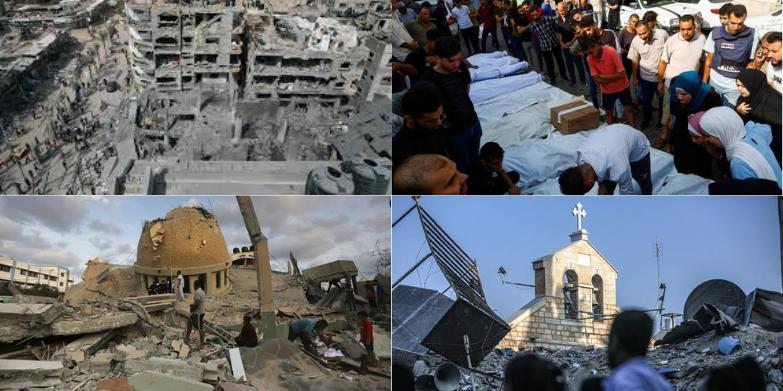The Israel-Hamas conflict has strained diplomatic relations between Israel and various other countries, as the humanitarian crisis increases. Many countries have made crucial decisions, severing ties, recalling ambassadors, or suspending flights, all in a collective plea for Israel to cease actions harming innocent people and seek a resolution for Palestinians.
As per recent reports, North Korea seems to extend support to Palestinians and explore the potential sale of weapons to Middle Eastern groups. This revelation, sourced from South Korea’s intelligence agency and reported by The Wall Street Journal, adds a new dimension of complexity to the situation.
On October 31, Bolivia made a drastic decision to cut diplomatic ties with Israel due to Israel’s involvement in acts against humanity. Freddy Mamani, Bolivia’s deputy foreign minister, made an announcement at a press conference, mentioning Bolivia’s strong condemnation of Israel’s forceful military campaign in the Gaza Strip.
Bolivia’s action positions it among the first nations to formally sever diplomatic connections with Israel due to the ongoing conflict. This decision aligns with former president Evo Morales’ earlier call for Bolivia to disassociate itself from Israel.The move reflects the severity of the crisis, with nations taking unprecedented steps to express solidarity with Palestinians and condemn perceived injustices. Meanwhile, North Korea’s potential involvement raises concerns about potential arms sales and their broader impact on regional stability.
Bolivia’s diplomatic break with Israel signifies a significant stance against what it views as severe transgressions. This aligns Bolivia with other nations that have taken a firm position in condemning Israel’s actions.
On November 2, the Bahraini parliament announced the temporary severance of economic ties with Tel Aviv, joining Chile, Jordan, and Colombia in recalling their ambassadors from Israel. This protest stems from the perceived “humanitarian catastrophe” in the Gaza Strip and the increasing civilian casualties. Colombia’s President Gustavo Petro cited Israel’s “massacre of the Palestinian people” as the reason for recalling their ambassador on November 1. Chile’s President Gabriel Boric recalled their ambassador to discuss Israel’s alleged violations of international humanitarian law in Gaza. Jordan’s Foreign Minister Ayman Safadi immediately recalled their ambassador, condemning the ongoing conflict and its impact on innocent lives.
Emirates Airlines extended the suspension of flights to and from Israel until November 30, prioritizing the safety of passengers, crew, and stakeholders. Similarly, British-based easyJet canceled all flights to Tel Aviv until November 30. Delta, United Airlines, and American Airlines have temporarily suspended direct flights to Israel.
According to the health ministry, 9,056 Palestinians have been killed, including 3,718 children and 1,929 women, with 21,890 wounded. Hamas has reportedly killed over 1,538 Israelis, wounded 5,431, and captured at least 239, aiming to exchange them for more than 6,000 Palestinian prisoners, including children and women.
The conflict between Hamas and Israeli forces has persisted for 27 days. It began with Hamas’s “Al-Aqsa Flood” operation on October 7, involving thousands of rockets fired from Gaza, leading to the capture of soldiers and civilians. Israel responded with Operation Iron Swords, resulting in a high Palestinian casualty count. Gaza now faces a severe humanitarian crisis, lacking electricity, water, food, fuel, and medical supplies. This has prompted civilians to flee to the south.

